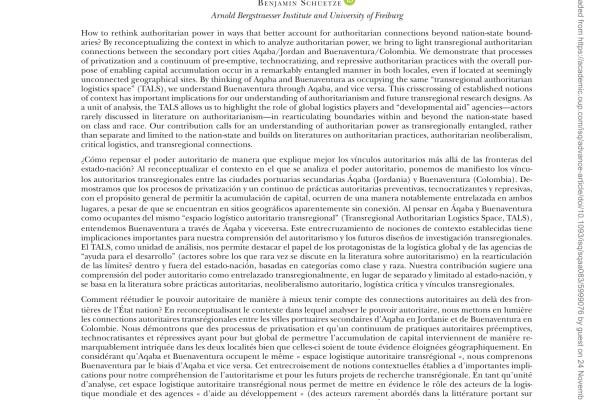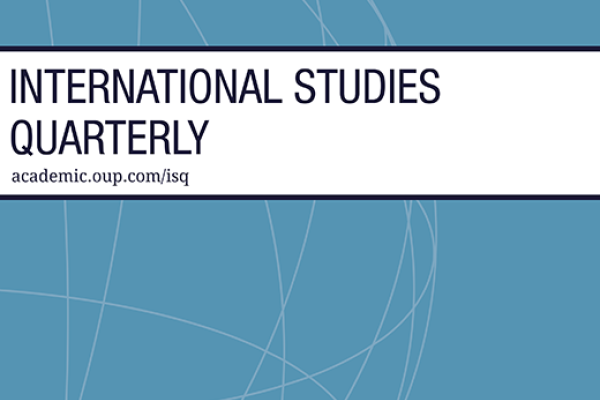

peer reviewed
How to rethink authoritarian power in ways that better account for authoritarian connections beyond nation-state boundaries? By reconceptualizing the context in which to analyze authoritarian power, we bring to light transregional authoritarian connections between the secondary port cities Aqaba/Jordan and Buenaventura/Colombia. We demonstrate that processes of privatization and a continuum of pre-emptive, technocratizing, and repressive authoritarian practices with the overall purpose of enabling capital accumulation occur in a remarkably entangled manner in both locales, even if located at seemingly unconnected geographical sites. By thinking of Aqaba and Buenaventura as occupying the same “transregional authoritarian logistics space” (TALS), we understand Buenaventura through Aqaba, and vice versa. This crisscrossing of established notions of context has important implications for our understanding of authoritarianism and future transregional research designs. As a unit of analysis, the TALS allows us to highlight the role of global logistics players and “developmental aid” agencies—actors rarely discussed in literature on authoritarianism—in rearticulating boundaries within and beyond the nation-state based on class and race. Our contribution calls for an understanding of authoritarian power as transregionally entangled, rather than separate and limited to the nation-state and builds on literatures on authoritarian practices, authoritarian neoliberalism, critical logistics, and transregional connections.
